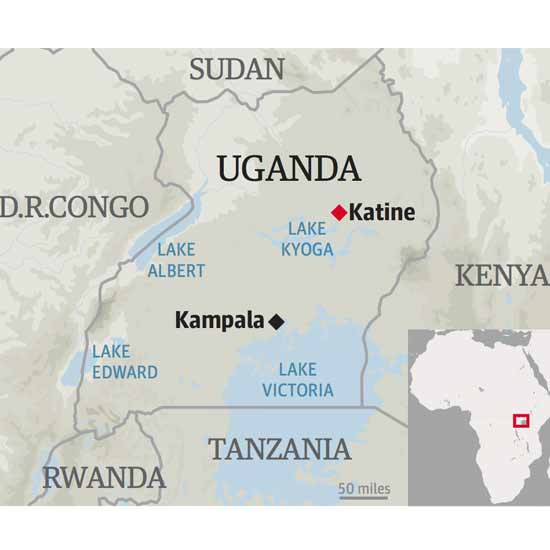I admire this for being well made and showing how persistence with video in schools can pay off.
Hat tip to Simon, father of the growing international flytipping group on flickr
I admire this for being well made and showing how persistence with video in schools can pay off.
Hat tip to Simon, father of the growing international flytipping group on flickr
Nice job from Demos on a number of counts. This is good use of online social media – (this film appears on Youtube and their blog so you can watch it, comment on it and share it – hence social media) and a neat summary of the problem of children no longer feeling safe or welcome to play in public spaces. The film is well made by Adam, their audio visual intern. Does your organisation have such a thing? If not – should it?
technorati tags: demos childhood play cities
del.icio.us tags: demos childhood play cities

The Guardian’s newly declared 3 year commitment to the village of Katine in Northern Uganda is an ambitious project using the principles of nptech. Guardian editor Alan Rusbridger sets out the three ways he think their long term online work for the community should work:
Get the STORY out there. To quote Rusbridger the newspaper (with less paper and more digits I hope) can “report, record, explain, contextualise, illuminate and analyse… explore the complexities of trying to help communities such as Katine in a sustainable way. It should be able to get beyond the sloganising and occasional yah-boo politics of the development debate.”
FUNDRAISE. Like any busy website the Guardian “can involve a huge community of readers and web-users around the world and find ways of linking them in to what we’re doing. We’ll need money obviously.”
and CROWDSOURCE “just as importantly we need advice and involvement. Among our readers are water engineers, doctors, solar energy experts, businessmen and women, teachers, nurses, farmers. We absolutely don’t need a stampede of volunteers, but we would like a technical know-how bank of people who are prepared to offer time and advice. We’ll let you know how to get involved as we go.
Alan Rusbridger adds a fourth, visibility. “Katine and its problems barely register in the capital, Kampala. Some local officials worry that, because it is an area where the political opposition to Mr Museveni’s NRM party is strong, Katine’s problems may not have been among the government’s highest priorities.” What interests me about this is that the potential of the net to apply funds and expertise means that this community could remain ignored in Kampala whilst highly visible elsewhere.
This got me thinking about applying these principals in our own towns and cities. Our own podcast, the Grassroots Channel, has focussed on active citizens and the work they do in neighbourhoods in Birmingham.
But we have not focussed on one neighbourhood and the things we can learn/change from deeply understanding one place. Neither has any local news organisation I’ve ever worked for or know of. Of course some of the poorest parts of our city have had reams written about them; hours filmed and recorded there. But never with the main purpose of the applying the knowledge and resources of the readership for the benefit of that community. Curiously enough though this is exactly what good active citizens do: they get under the story of their neighbourhood – using the stories to decide what to do next and how to convince people to join them.
Elsewhere on the web: The Register is much more cautious than I, sceptical it will accomplish no more than fundraise. Paul Bradshaw is (rightly) excited by such a tangible application of journalistic crowdsourcing, whilst adding a list of how it can be improved – including better use of rss, embeddable video, a clearer way of involving the expertise thrown p (could a wiki with digg buttons help evolve and elevate innovations and the people behind them). The paper also needs to be generous with linking to and talking about these supporters, which works.
This Mad Kenyan Woman finds the whole premise offensive: “I was somewhat displeased, to say the least, to find that the Guardian thinks this Ugandan village exists in a time-warp. Indeed, Guardian readers are invited to lift these poor suffering villagers out of the Middle Ages into the twenty-first century by their generous donations. I could not make this up if I tried…”
Three films which set out how diversity networks are supporting active citizens in Birmingham are the launch videos for the Youtube Channel for the Birmingham Community Empowerment Network. The diversity networks were the subject of quite a strong appeal from the Bishop of Birmingham – who argued on the Grassroots Channel that they should be supported, not allowed to wither.
B:cen (which has employed me on a freelance basis for a good three years) will lose all of it’s funding from November this year, and is now campaigning to try and persuade Birmingham City Council and the Birmingham Strategic Partnership to continue to support the networks (not b:cen as a body) established in neighbourhoods in the city and by groups of shared interest across the city.
Back to the videos, made by another local community film maker Rachel Smith with interviews by Paul Slatter. One is about the Podminions podcast channel which I share purely because I agree with everything they say (and vanity)…
but I think my favourite happens to be Mark on the Disability Network – ‘cos he’s always made compelling arguments for networks as a tool for strengthening communities…
If you want to keep tabs on more films as they are put up, go to the channel page and use the subscribe button to stay up to date.